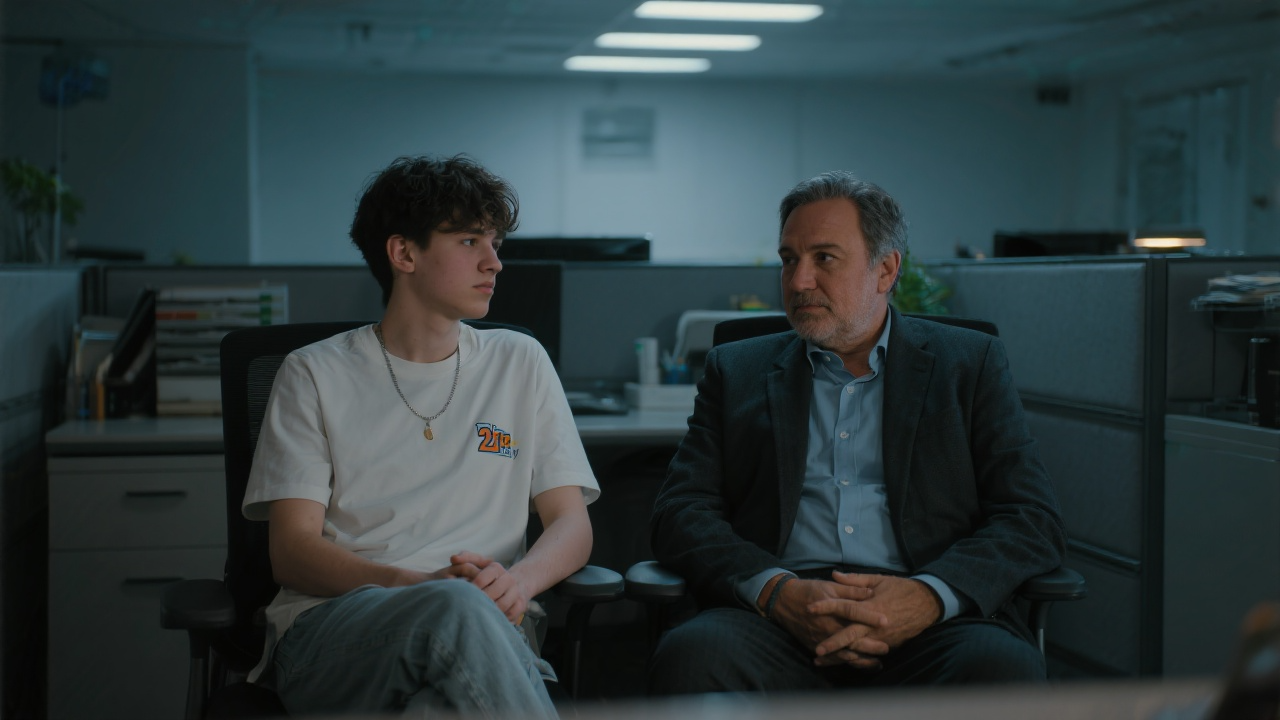By
•
Saisri Pinnam
09 July 2025
•
5 min read


At LeadSpectra, the belief has always been that how people work together matters as much as the work itself. Lately, the real issue isn’t tools or workflows but the quiet disconnect between generations at work.
When Gen Z entered the workforce during the pandemic, they adapted to remote life, where everything revolved around a screen. Human connection quietly faded. This shift affected everyone, not just Gen Z. Interactions became efficient but less personal, and people started feeling more distant, even in the same team.
This lack of connection has impacted team culture, motivation, and ownership. When people feel unseen or unheard, they mentally check out. But each generation brings something valuable. Older generations offer calm and experience. Gen Z brings adaptability and openness to change.
It’s not about fixing each other. It’s about finding a middle ground, choosing to understand and work with each other. That mindset can bring back the warmth we’ve lost. The future of work depends on collaboration across generations, and it starts with small, intentional efforts to connect.
At LeadSpectra, we’ve always believed that how people work together matters just as much as the work itself. Not in loud, standout ways but in the small, everyday moments: the way people listen, disagree, adjust, and show up for each other. And lately, we’ve been noticing something. It’s not tools or processes that are causing the most friction; it’s the quiet disconnect between generations: how we assume, misread, or simply stop caring for each other entirely.
So, this article isn’t just a read. It’s a moment to pause and reflect on: How do we move from misunderstanding to the middle ground? From working in parallel to building together?
Everyone talks about “bridging the generational gap” these days. It sounds easy — some kind of feel-good alignment between Gen Z, Millennials, Gen X, and Boomers. But in real workplaces, it rarely feels that smooth. What I’ve seen and felt is this subtle, slow disconnect. Gen Z often gets labeled as “too sensitive,” “too fast,” or “too into themselves.” Whereas the experienced generation is often seen as “too rigid,” “slow to adapt,” or “set in their ways.” Neither side is wrong. Both carry their own set of strengths and weaknesses. But the friction begins when we start seeing those differences as problems. This disconnect quietly turns into awkward moments, silent frustrations, unspoken assumptions, and people walking away from conversations feeling a little unheard. That’s probably enough to make working together feel a bit heavier than it should.
Let’s rewind to when Gen Z entered the workforce around 2019–2020? They were stepping into adulthood, fresh out of college or in their first job, trying to figure things out. And then the world hit pause. Homes became everything, their office, gym, café, meeting room, and even a place for connection (through social media). Life shrunk down to one screen and oneself. According to a 2022 McKinsey report, nearly 60% of Gen Z workers said remote work made it harder to feel connected to their teams, more than any other generation.
In that phase, something quietly shifted. Everything became about the Me Factor — my screen and my comfort zone. It wasn’t selfishness. It was survival. It made sense at that time. But unknowingly, we began to lose something along the way.
Human connection started fading. Without even realizing it, we grew accustomed to a certain distance, not just physically, but also emotionally and mentally, especially at work. Conversations still happened, but they started to feel filtered, mechanical, and fast. We stopped speaking from the brain and the heart; we were just functioning on autopilot.
And it wasn’t Gen Z alone. All of us, across generations, adjusted to this new way of functioning. We became more efficient, but maybe a little less human. The warmth in everyday work, the check-ins, the eye contact, the energy of being around people, all of it got flattened into screen time. Emojis started doing the job of human reactions: a heart, a thumbs-up, a laughing face, all standing in for what we used to say or feel in person.
We’ve always said, “Man is a social animal,” and that’s a fact. But somewhere in those years, many of us forgot what a real connection even feels like. The “social” part started to slip away anyway. So then... what are we left with? The animal? But even animals are compassionate. They love deeply. They show gratitude. Most importantly, they express their feelings.
So, if we’ve drifted from being truly social and we’re not even grounded like animals anymore… Are we slowly turning into something worse? Something colder? More detached? Like monsters? This might sound extreme. But if it sparked a thought, even for a second, it means we haven’t gone numb yet. That’s good. We still crave something more human. The only constant is change but change needs human connection. And that’s irreplaceable.
Let’s look at this from the organization’s point of view. At the end of the day, every organization wants to retain talent, build accountable teams, boost productivity, and create a culture where performance is sustainable. Maybe that begins by remembering what work is supposed to feel like connected, purposeful, and human. And now that we’re back in shared spaces, this is our chance.
When people feel disconnected, they stop trying, not only in their actions but with presence, ideas, with energy. They check out quietly, they avoid ownership, they stop feeling responsible and somehow pull through the day. And this is what we’re seeing in how teams perform, how culture feels, and how long people stay.
The truth is we need each other. But that only works when we stop talking about each other and start talking to each other with respect, without needing to win, and understanding the need to collaborate.
‘One thing Gen Z needs to work on is not checking out too early. We’re quick to mentally exit when something feels off. That’s not great for us or the team. We’ve got to learn how to engage even when things aren’t perfectly aligned.’
‘Speak up, clarify things, and try to understand before walking away. Sometimes, a small conversation can fix what we assume is a big problem.’
What we admire in earlier generations:
What Gen Z brings:
It’s not about proving one generation is better. It’s about realizing that difference doesn’t mean dysfunction.
It’s possible to work with someone who has a different style and not feel the need to “fix” them.
That’s what meeting at the middle ground looks like.

I say all this from my experience. When I started working, I was a young Gen Z professional who had to work with someone with over 25 years of experience.
At first, I’ll be honest, it felt all over the place. Not because we didn’t like each other, but because we operated differently. But something shifted when we both chose to meet halfway without either of us needing to compromise on who we were.
We both started noticing the effort on the other side. She gave me space to try things my way. I made sure I followed through on what I promised. She didn’t micromanage. And I didn’t check out. She never made me feel “too young” or “too new.” And I never dismissed her approach just because it felt different from mine. We didn’t always agree and that was okay. We had boundaries, but we didn’t treat them like walls. We worked around them.
That’s when I understood what the middle ground looks like.It’s not about fixing each other. It’s two people from different eras with different instincts choosing to meet halfway and creating space for both new ideas and experiences to work together.
The middle ground is a mindset. Because the truth is, most people are working from different defaults. The middle ground is where those defaults are seen, respected, and gently adjusted. It’s how we move from friction to flow, performance to presence, and coexisting to co-building.
That’s all it takes. Because once you feel that kind of balance, you realize this isn’t about generations trying to win. It’s just people, trying to be understood.
The Indian workforce is one of the youngest in the world. And the future won’t be built by one generation alone. It will be co-created through balance. Start small, and you will see the difference.